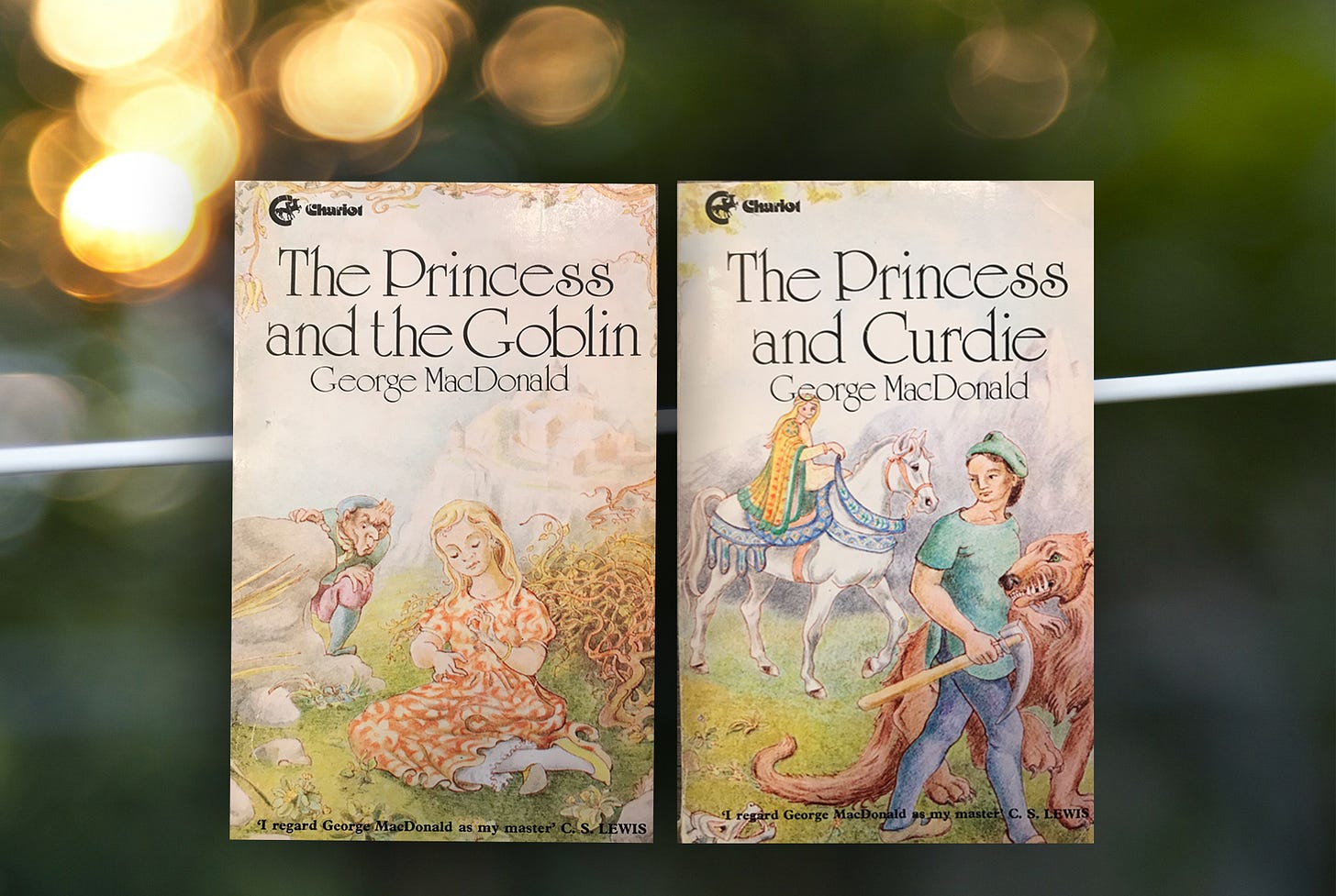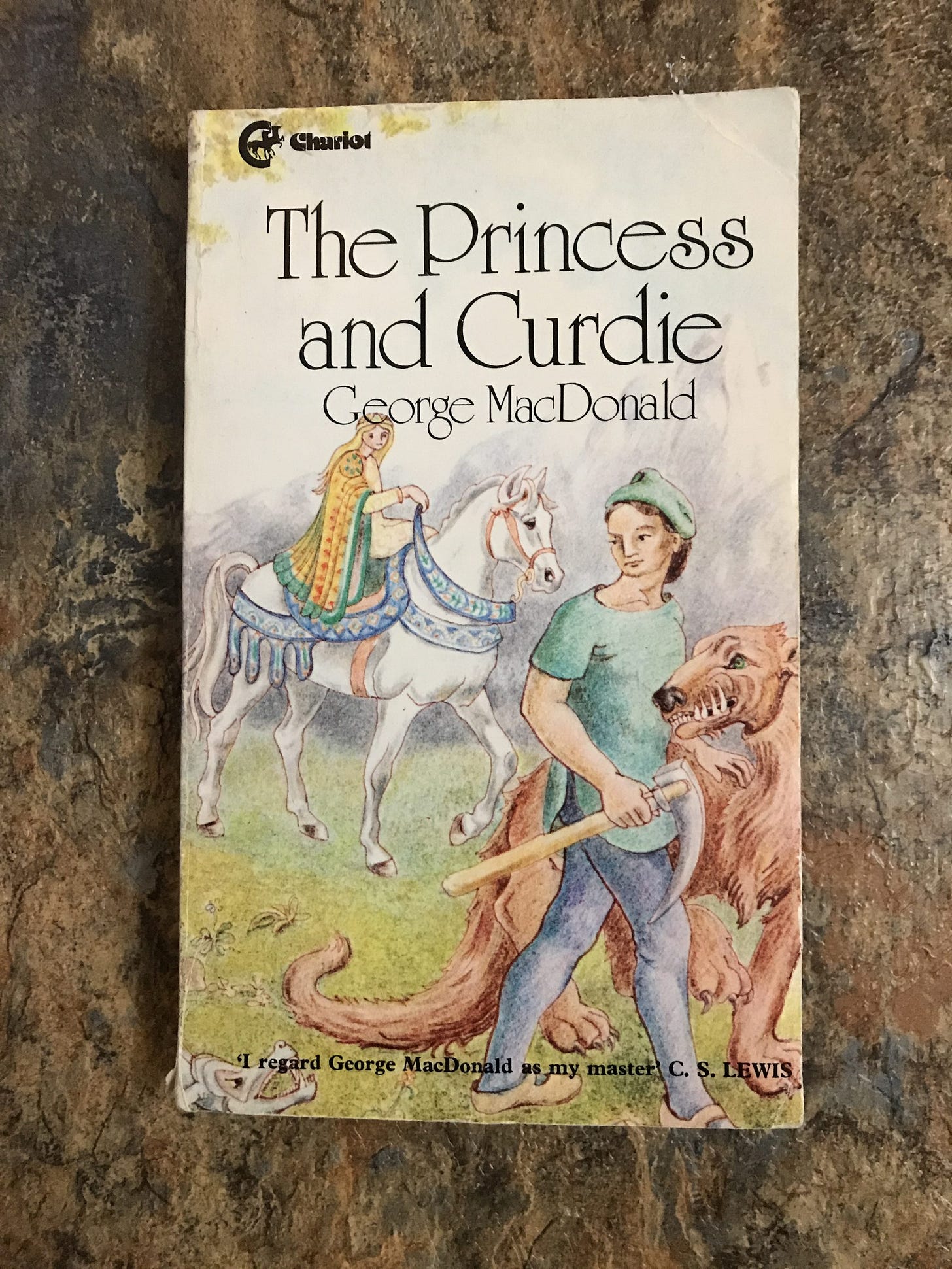6 Great Reasons to Read The Princess and Curdie by George MacDonald
George MacDonald fooled me. I read both The Princess and the Goblin and the sequel The Princess and Curdie, thinking that they were just stories. It wasn’t until I was an adult, and I re-read them that I realized that these books aren’t just tales. They’re devotionals. But maybe I shouldn’t be surprised about it. The greatest teacher of all time, Jesus, told simple stories that we could understand and remember.
In the second book of the series, The Princess and Curdie, George MacDonald takes the reader from the mines to the capital of the kingdom where Princess Irene now lives with her father to keep her out of danger. Little do they know, danger surrounds them, and they become trapped by those who hunger for the crown. Curdie falls into the routine of work and daily life and, having no one to talk to about Irene’s Great-great grandmother, drifts farther and farther away from what is good. And in this setting, George MacDonald weaves a tale you will never forget while dropping wisdom in for us in a gentle and treasured manner.
God desires us to be glad.
“He had done the thing that was contrary to gladness; he was a destroyer! He was not the Curdie he had meant to be!” (page 23)
We drift away from good when we don't pay attention:
“I was doing the wrong of never wanting or trying to better. And now I see that I have been letting things go as they would for a long time. Whatever came into my head I did and whatever didn’t come into my head I didn’t do.” (page 31)
Sometimes it's best to stay silent:
“If you should hear anyone speak about me, never to laugh or make fun of me.” And she continues to say, “Only to hold your tongue, and not seem to side with them.” (page 32)
We should never say anything bad about God, for we don't know everything:
Curdie said, “If bad things were true, and I knew it, I would not hesitate to say them, for I will never give in to being afraid of anything that’s bad. I suspect that the things they tell, however, if we knew all about them, would turn out to have nothing but good in them.” (page 43)
The poor know many blessings:
“Things come to the poor that can’t get in at the door of the rich... It is a great privilege to be poor.” (page 51)
Answers to our questions will come:
“You may ask me as many as you please-that is, as long as they are sensible. Only I may take a few thousand years to answer some of them.” (page 52)
Faith is stronger than sight:
Grandmother says, “No, Curdie, that would be to keep you from knowing me. You must know me in quite another way from that. It would not be the least use to you or me either if I were to make you know me in that way. It would be no better than if I were to take this emerald out of my crown and give it to you to take home with you, and you were to call it me, and talk to it as if it heard and saw and loved you. ... No; you must do what you can to know me, and if you do, you will.” Page 54
Know that God is always in control:
“Now, Curdie, are you ready?” she (Grandmother) said. “Yes, ma’am," answered Curdie. “You do not know what for.” “You do, ma’am. That is enough.” (page 53)
How I long for that simple faith to say, “God, I don’t know what You are calling me to do. But You do. And that is enough."
Which quote speaks to you the most? Why?
Want to learn more about George MacDonald? Check out An Introduction to George MacDonald: His Faith-Filled Fantasy, Fiction, and Fairy Tales and Reviving the Work of George MacDonald.
But don't miss Why C.S. Lewis Fans Should Not Ignore George MacDonald over at Kindred Grace.




